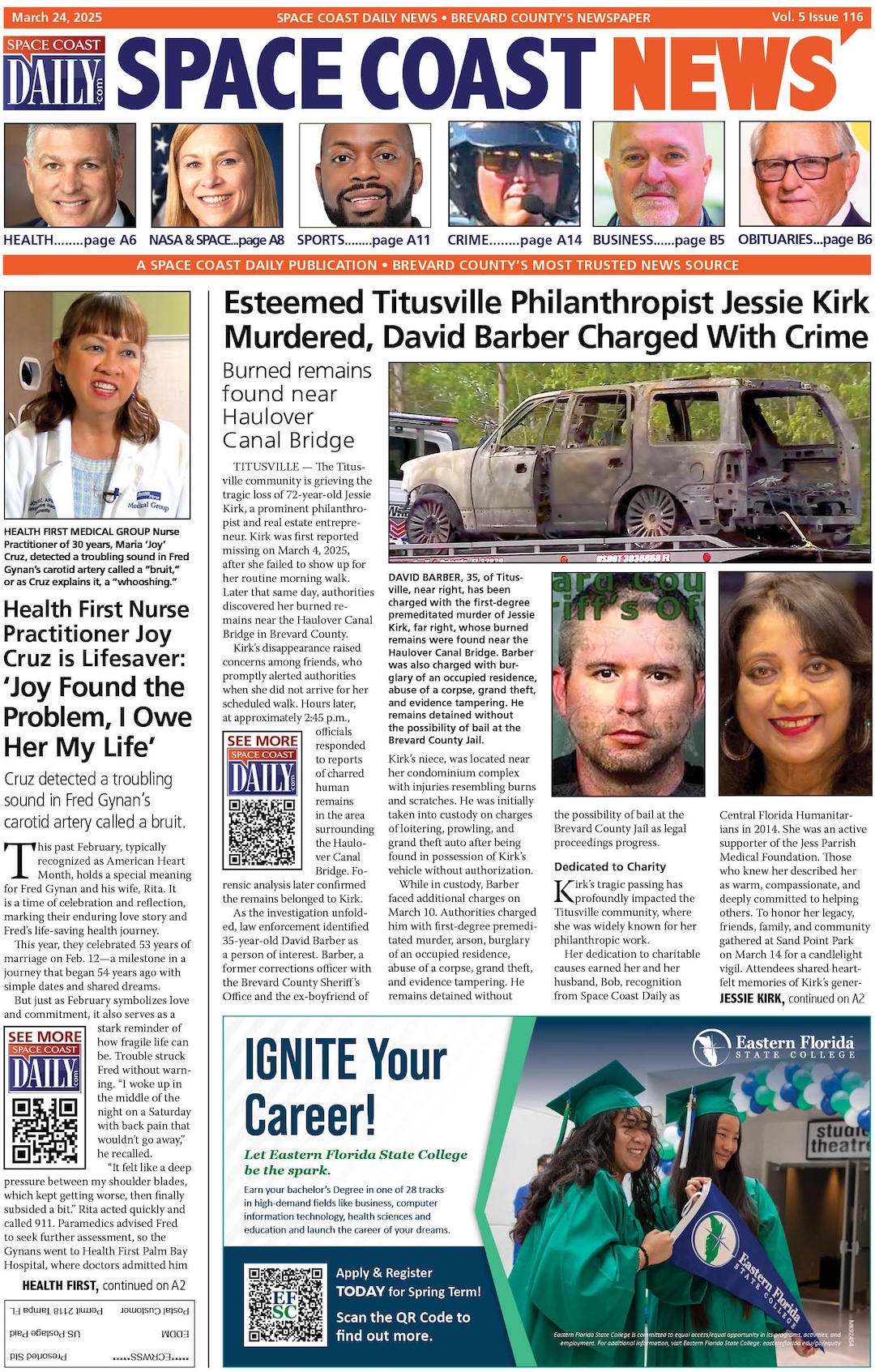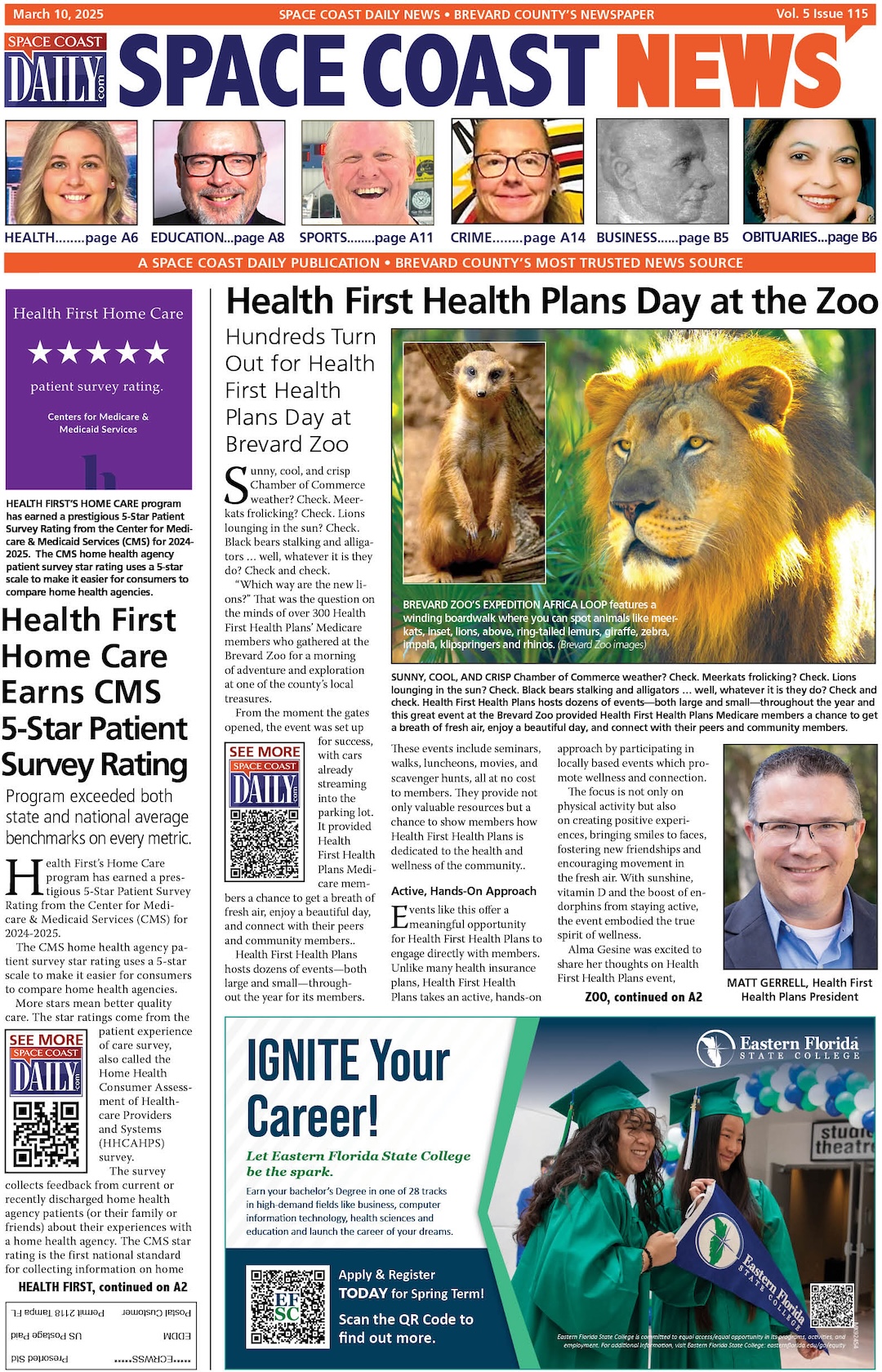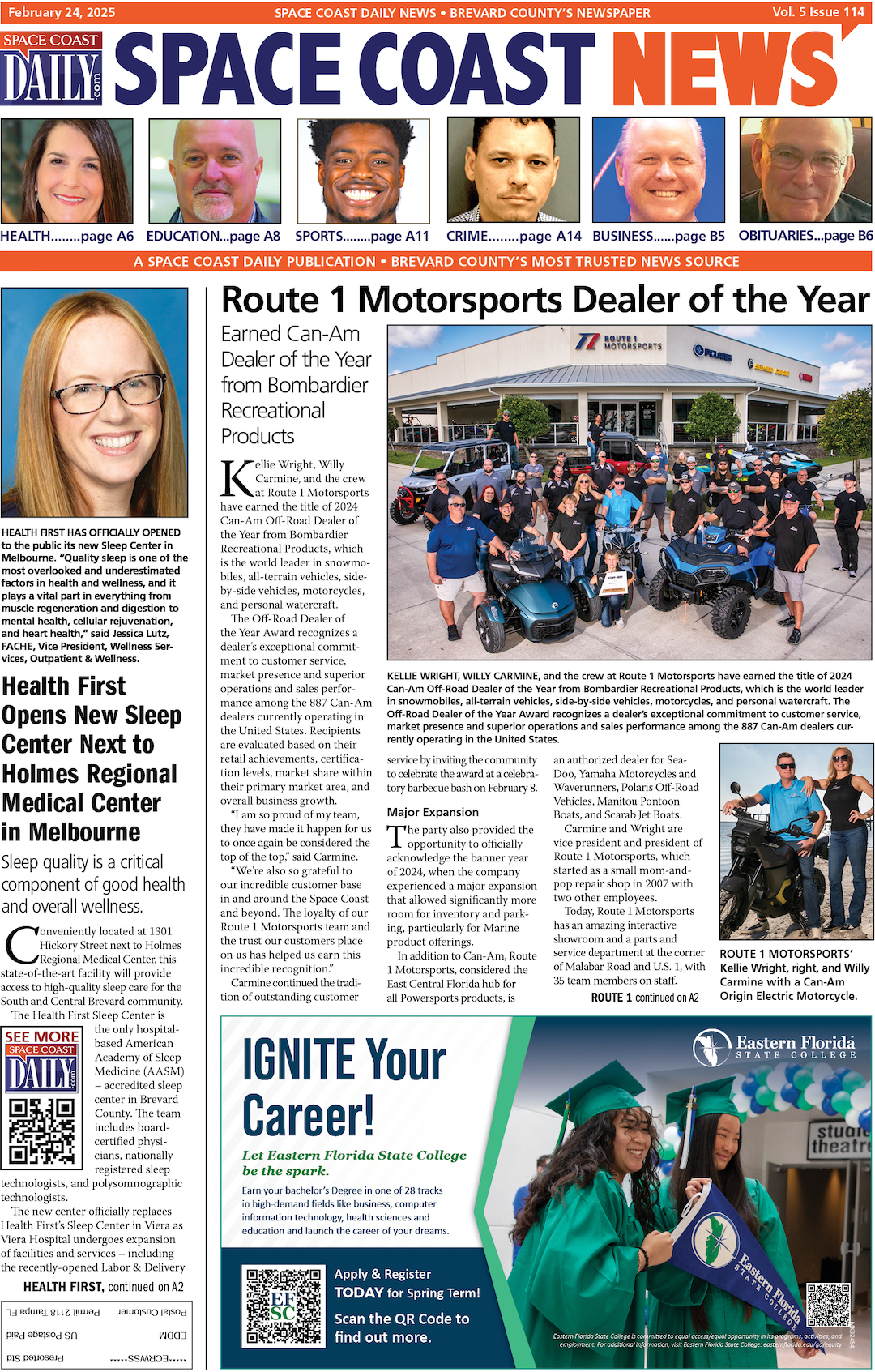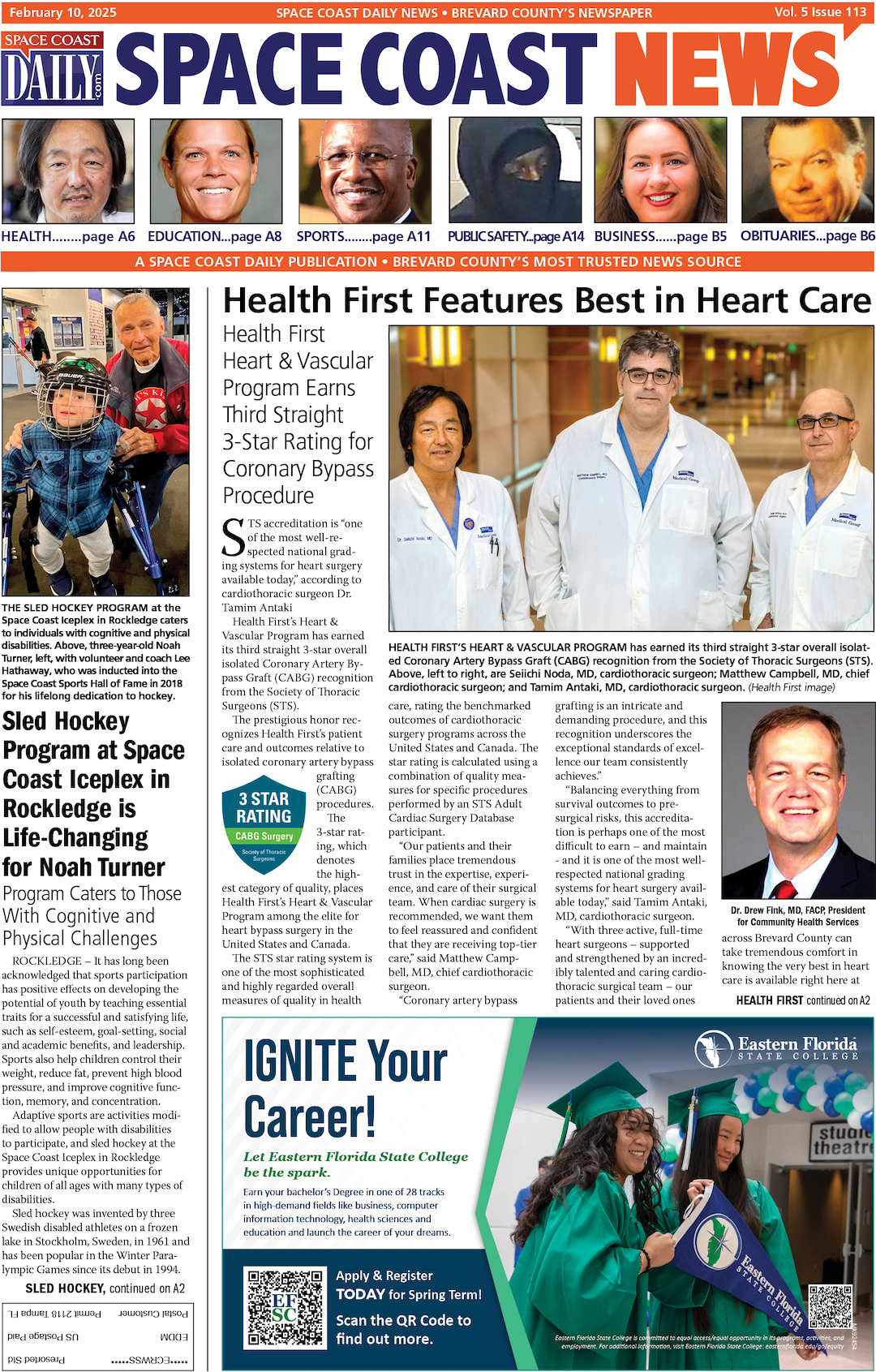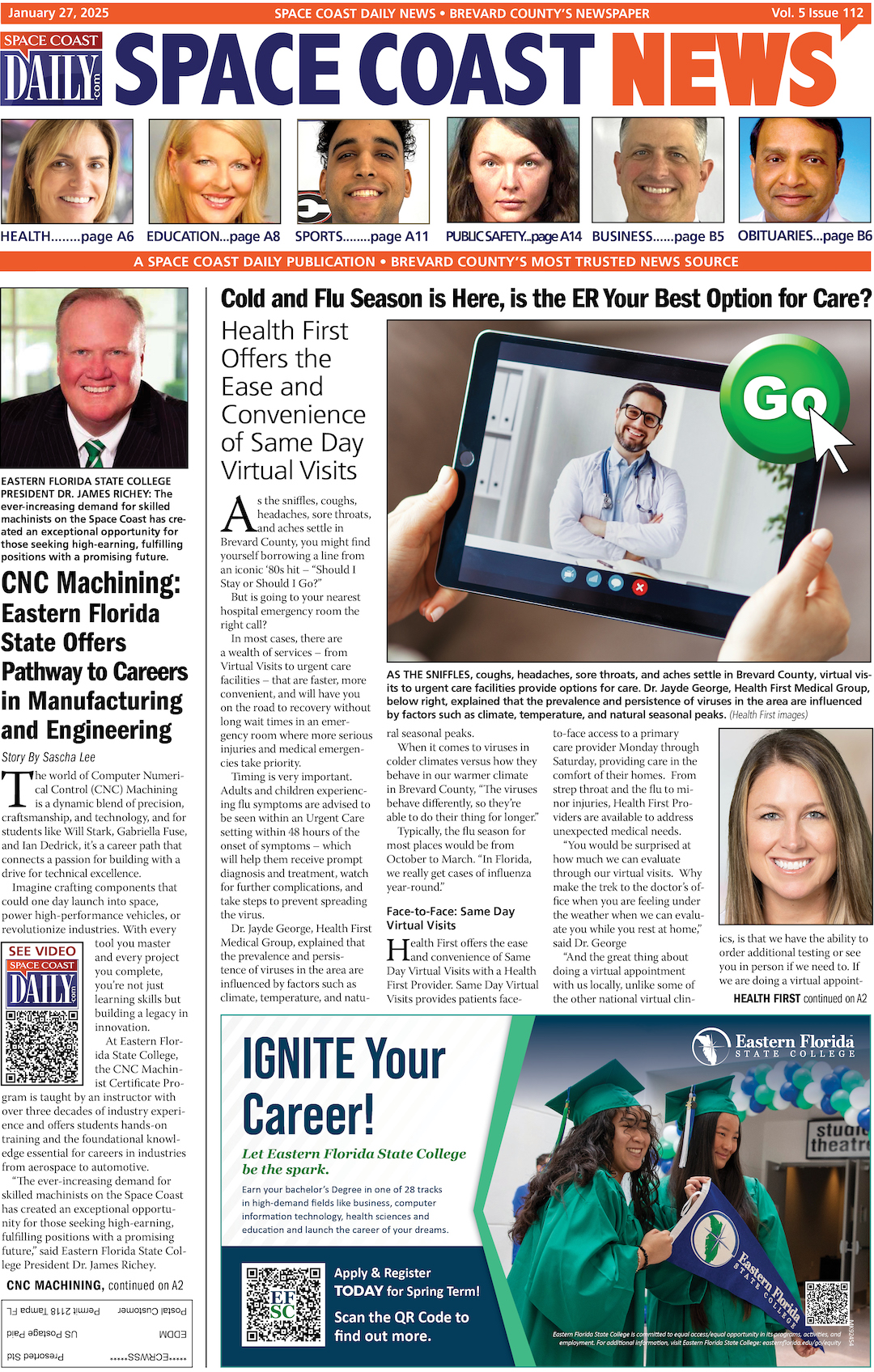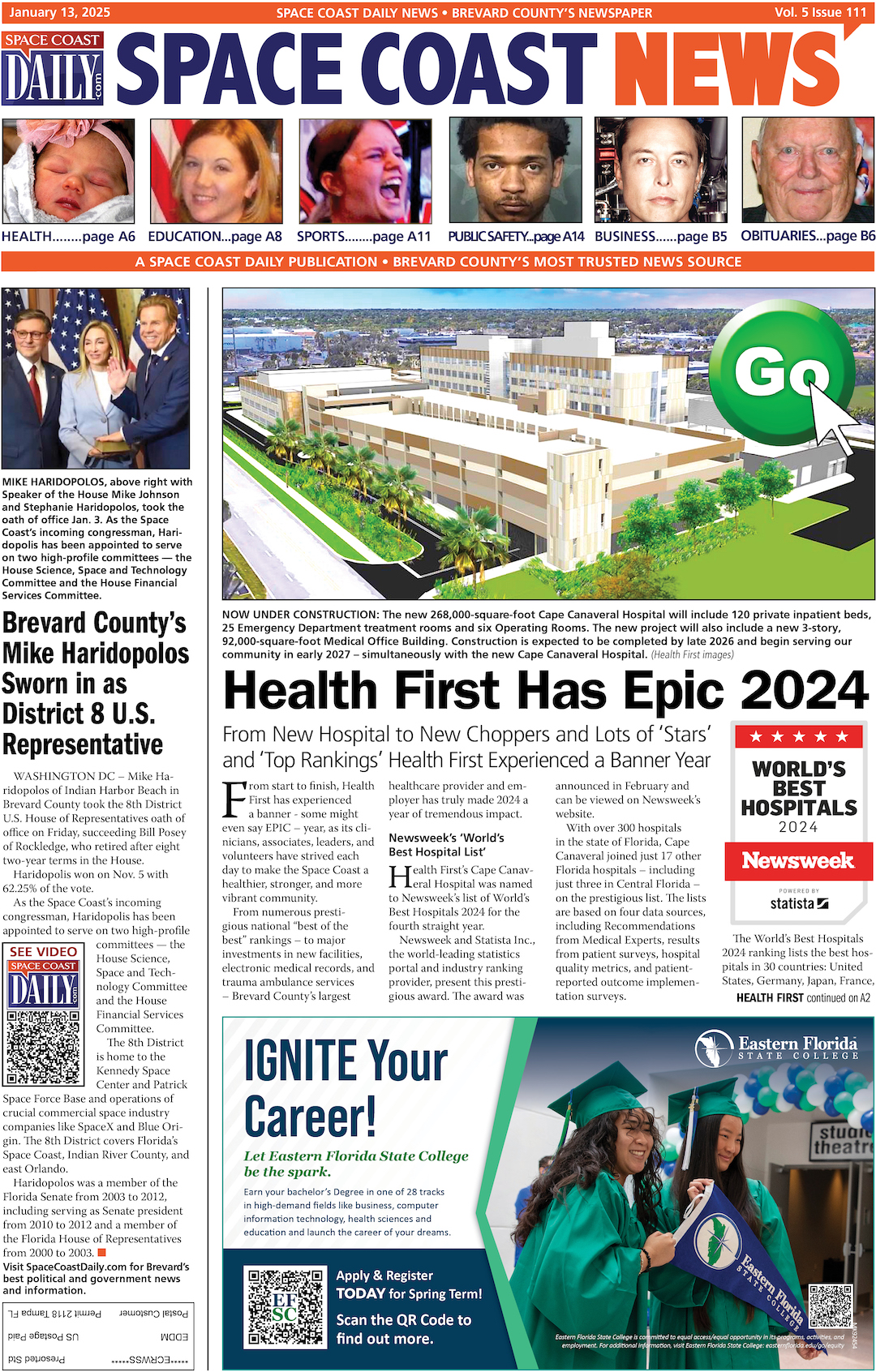Nursing Home Falls: Causes, Effects and Prevention
By Space Coast Daily // October 27, 2022
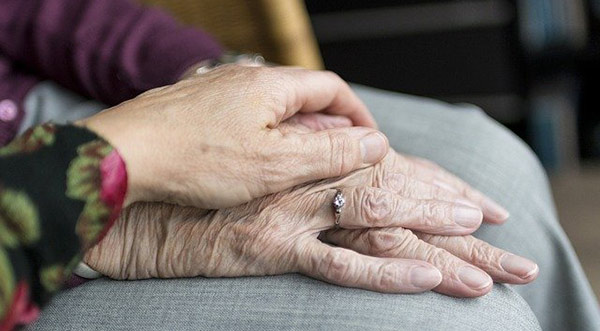
While nursing homes provide a safe, secure space for seniors to live, certain risk factors still exist. Falls pose a significant problem in many care facilities, occurring about twice as frequently as falls inside private homes.
Reducing falls in a nursing facility requires a coordinated approach by staff, residents, family members, and others to identify risks and implement prevention strategies.
Why Do Falls Occur in Nursing Homes?
Even though approximately five percent of adults age 65 and older live in nursing homes, the location accounts for 20 percent of all fatal falls within that age group, according to the CDC. Over half of all nursing home residents will fall an average of twice annually.
Three factors combine to create an increased falling risk:
■ Mobility Issues
■ Environmental Conditions
■ Prescription Medication
People typically move into nursing homes when health conditions have made independent living unsafe. Muscle weakness, poor vision, balance issues, and other physical issues can all increase the risk of falling.
Nursing homes also have environmental factors not found in a private home. Common hazards include wet floors, dim lighting, and improperly sized beds and wheelchairs.
A study by the Kaiser Family Foundation found that 89 percent of seniors take at least one prescription medication. Many medications can impair an individual’s sense of balance, increasing the likelihood of a fall. The most common problematic medications are those that affect the central nervous system, such as sedatives and anti-anxiety drugs.
Injuries Due to Nursing Home Falls
Falls are one of the leading causes of death and injury among adults over 65. They commonly result in broken bones, fractures, or traumatic brain injuries. Injuries to wrists, arms, and ankles also frequently occur.
Hip fractures are another serious injury often caused by a fall. According to the CDC, over 300,000 seniors are hospitalized each year following a fall.
A fall can also impair a person’s mental health. When seniors fall, they might feel less confident about walking, leading to future muscle weakness and decreased mobility overall.
“Falls can have far-reaching consequences,” says nursing home attorney Sean O’Neill of California Nursing Home Abuse Lawyers. “Even after the physical injury heals, the senior might feel nervous about walking, leading to reduced independence and possibly even depression.”
Preventing Falls in Senior Care Facilities
Preventing falls requires implementing multiple strategies.
Training and education provide an essential foundation for facility safety. All staff members should receive regular instruction detailing how to identify potential risks, both to individual residents and across the facility.
Facility staff and medical personnel must work with residents to proactively prevent falls. Fall protection plans can include assessing an individual’s risk, monitoring medication changes, developing an exercise program, and adding Vitamin D supplements.
Additionally, staff need to maintain safe environmental conditions. Walkways should remain free from liquids, obstacles, and damage. Lighting should be bright and well-maintained. Furniture such as rugs, low tables, and other potential hazards should be removed.
Does a Fall Indicate Nursing Home Negligence?
Although falls in nursing homes are common, they’re not inevitable. A well-maintained nursing home with trained staff can implement a comprehensive fall prevention plan to help reduce falls. But what if the facility fails to prepare adequately?
If conditions in the facility, or actions by the staff, contribute to a fall, nursing home ownership might end up responsible for medical bills and other expenses for the injured party or surviving family. Any fall inside a nursing home requires a thorough investigation, typically by a personal injury attorney, to identify potentially broader instances of negligence.
Falls can have devastating outcomes, but a proactive and prepared approach from nursing home administration and staff can help seniors stay comfortable, mobile, and safe.



